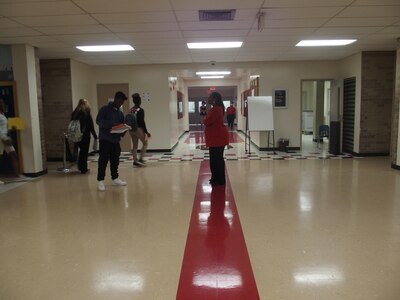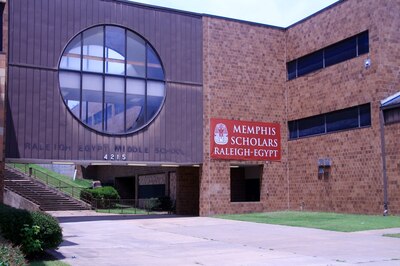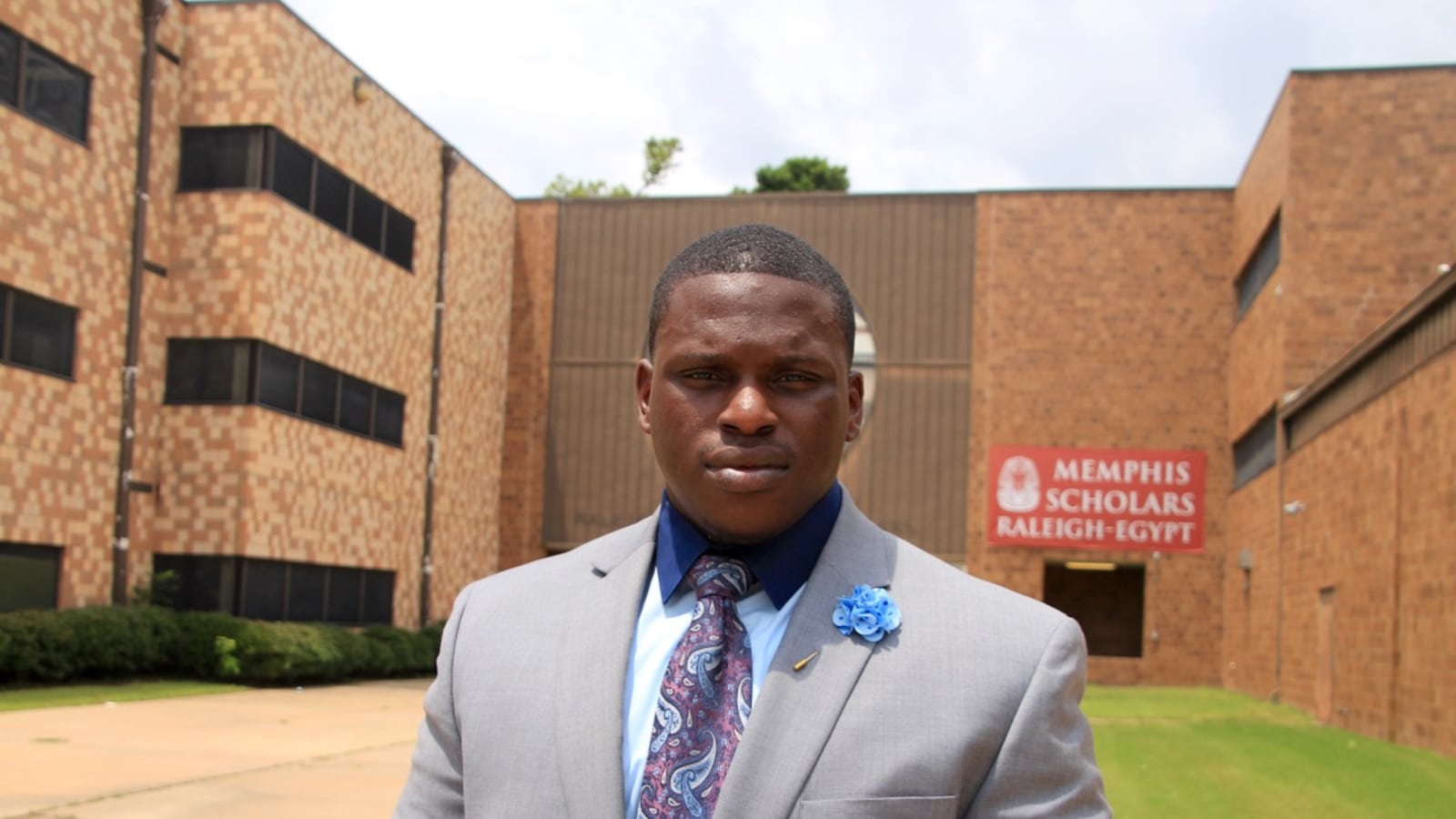Edwina Hankins thought long and hard about where to send her son for his eighth-grade year.
A longtime resident of north Memphis, she was looking for a new start for Quinten, who struggled with grades while attending a traditional local school under Shelby County Schools. She also was concerned about reports of violence there.
So when the state took control of Quinten’s middle school last summer and chose Memphis Scholars to reopen it as a charter school, Hankins decided to take a chance and invest in the change.
“His Memphis Scholars grades started pretty rocky, but the teachers worked with him pretty great, and he did best he’s ever done,” she said of her family’s experience at Memphis Scholars Raleigh-Egypt Middle School.
Now Hankins is grappling with the reality that the charter school won’t be there for her elementary-age daughter when she reaches sixth grade, or for students who had planned to return this fall.
Memphis Scholars announced in late May that it’s leaving the Raleigh neighborhood it signed up to serve — and moving 16 miles across town to operate alongside the charter management organization’s Florida-Kansas Elementary School. It’s offering to bus Raleigh students every day to and from the new campus.
Officials at Memphis Scholars say they are just trying to be good stewards of scarce neighborhood resources that are spread too thin in Raleigh among several school turnaround programs. But the decision has frustrated students, parents, faculty and neighborhood leaders who had committed to the charter school when it opened last fall under Memphis Scholars.
“I referred people to that school …,” Hankins said in an exasperated tone. “I assumed they would be in our neighborhood for the long haul.”
The school’s faculty are equally disappointed. They learned about the move during the last week of classes, and were told they would have to reapply for a fewer number of spots. Only three educators have taken Memphis Scholars up on that offer, according to charter organization leaders.
“Moving to Florida-Kansas was a business decision,” said Derek King, who opted not to reapply for his job as director of culture and football coach. “It had nothing to do with the kids. Teachers and parents feel like this wasn’t given a real chance. We were only here a year.”
The cross-town relocation is the latest in a series of strategic moves that began after the state-run Achievement School District took control of the low-performing middle school last summer and picked Memphis Scholars to step in. Seeking to retain both students and funding, Shelby County Schools then added middle school grades next door at Raleigh-Egypt High School, which shares a campus with the Memphis Scholars school.

That set up a peculiar arrangement in which both schools — one operated by the state, and one by the local district — were seeking to enroll the same middle school students from the Raleigh community. By the end of its first school year, Memphis Scholars had 189 students enrolled, only half of the number it was aiming for, making it difficult to fund the kind of expensive supports needed for school turnaround work.
Memphis Scholars Director Nick Patterson said the nail in the coffin came this spring when Shelby County Schools announced plans to move Raleigh-Egypt Middle-High School into the district’s Innovation Zone, another turnaround program. That plan created “two schools, on the same campus, serving the same grades, both implementing expensive school-turnaround initiatives,” he said.
The charter operator entered a month of talks with the ASD and the State Department of Education, which approved the cross-town move — effectively closing Raleigh-Egypt Middle and providing a middle school option for elementary-age students at Florida-Kansas to stay with Memphis Scholars.
Whether or not that sticks is up in the air. Leaders for Shelby County Schools say Memphis Scholars can’t just pick up and move to another building where they already had tried unsuccessfully to add grades. The district is exploring legal options to keep that from happening.
“It’s one thing for the ASD to say we don’t like the school building. … We’re going to move a block away and still service that community,” said Rodney Moore, legal counsel for Shelby County Schools. “But nobody in their right mind can believe they have any interest in serving the Raleigh-Egypt community. They’ve essentially indicated that they want to take away the academic resources from that school building, move it across town, which is essentially robbing that community of valuable resources.”
Patterson says the move complies with state law and makes sense given the decision by Shelby County Schools to move Raleigh-Egypt Middle-High School to the iZone.
“Memphis Scholars strongly believes that this duplication of interventions is not in the best interest of students and families as it divides scarce resources between two schools,” he said in announcing the move.
As for a potential legal challenge, Patterson is optimistic it won’t come to that. “Our hope is this situation is resolved quickly so students and families can start school as they’ve been planning to do,” he said.
Even though the relocated school will no longer be in Raleigh, Memphis Scholars plans to keep the school’s Raleigh-Egypt name — to avoid confusion, according to Patterson.

But confusion lingers for students and parents who feel left behind in Raleigh, many of whom didn’t find out their school was moving until well into the summer.
“This is the first time I’m hearing of the school moving …,” said Amber Knox, a mother of two rising seventh-graders, last month. “But I can tell you they won’t be attending next year. That’s way too far. They’re going to inconvenience a lot of parents.”
Patterson said Memphis Scholars is working with parent groups like Memphis Lift and Fathers & Education to make sure all parents are informed about the move and the transportation option.
Still, several outgoing teachers think it’s more likely that parents will choose another school, just as most faculty members are.
“It was a sudden shock for the teachers, but also for the whole neighborhood,” said Angela Moore, who taught sixth grade for Memphis Scholars. “I have students still calling (and) asking me where they should go to school. There’s a lot of confusion, because a lot of parents still don’t know the school is closing and moving. I’m trying to figure out how parents are going to know about a bus when they didn’t even tell parents they were closing.”

